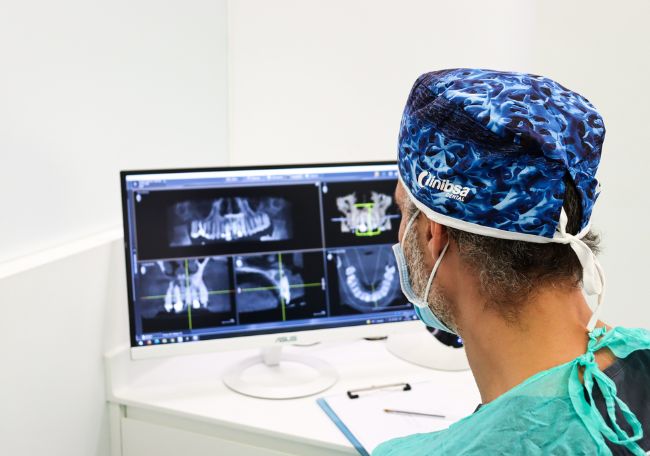Bumps and falls are part of childhood, but when one of these accidents results in the loss of a tooth, uncertainty and anxiety often take over. Is it serious? Can it be reimplanted? What should you do in those first few minutes? At our clinic, which specialises in paediatric dentistry, we’ll guide you step by step on how to act in the event of a dental trauma in children – and when it’s important to see a dentist immediately.
Is it a baby tooth or a permanent tooth?
This is the first thing you need to identify. Baby teeth usually fall out naturally around the age of six, but if one is lost due to an accident before its time, a dental check-up may be necessary to prevent future complications.
However, if the tooth is permanent, quick action is key to saving it.
What to do if a permanent tooth is knocked out?
Acting quickly is crucial. According to the Spanish Society of Paediatric Dentistry (SEOP), if your child suffers dental trauma and a permanent tooth is knocked out, follow these steps:
- Look for the tooth and pick it up by the crown (the white part), never by the root.
- Touching the root can damage the periodontal ligament, making reimplantation more difficult.
- Do not clean the tooth with soap or scrub it.
- If it’s dirty, rinse it gently with saline solution or whole milk. These options help preserve the living cells on the tooth.
- If possible, place the tooth back in its socket carefully.
- According to the Spanish Association of Paediatrics (AEP), if the child is cooperative and there’s no risk of swallowing, they can gently bite down on a piece of gauze to hold the tooth in place until reaching the dentist.
- If reimplantation isn’t possible, store the tooth in a container with milk or saline solution.
- Alternatively, if the child is old enough not to swallow it, you can place it inside their mouth, between the cheek and gums.
- See a dentist immediately.
- The sooner the trauma is treated, the better the chances of a successful reimplantation. The SEOP recommends not exceeding 30–60 minutes after the accident.
And what if it’s a baby tooth?
Although baby teeth are not reimplanted, it is still important to see a paediatric dentist to ensure there’s no damage to the gums, bone or the underlying permanent tooth germ.
In some cases, a space maintainer may be required to prevent nearby teeth from shifting and disrupting the future eruption of permanent teeth.
When should you seek emergency dental care?
- If the tooth has been completely knocked out.
- If the tooth is fractured or displaced.
- If there is pain, swelling, or excessive bleeding.
- If the child cannot close their mouth properly or has trouble speaking or eating.
While falls can’t always be avoided, using mouthguards during contact sports or teaching young children to be cautious while playing can reduce the risk of dental trauma. The SEOP recommends that all children participating in contact sports wear custom-fitted mouthguards.
Our main advice is that any blow to the mouth should be assessed by a professional to ensure long-term oral health. Our team of paediatric dental specialists is here to help.





